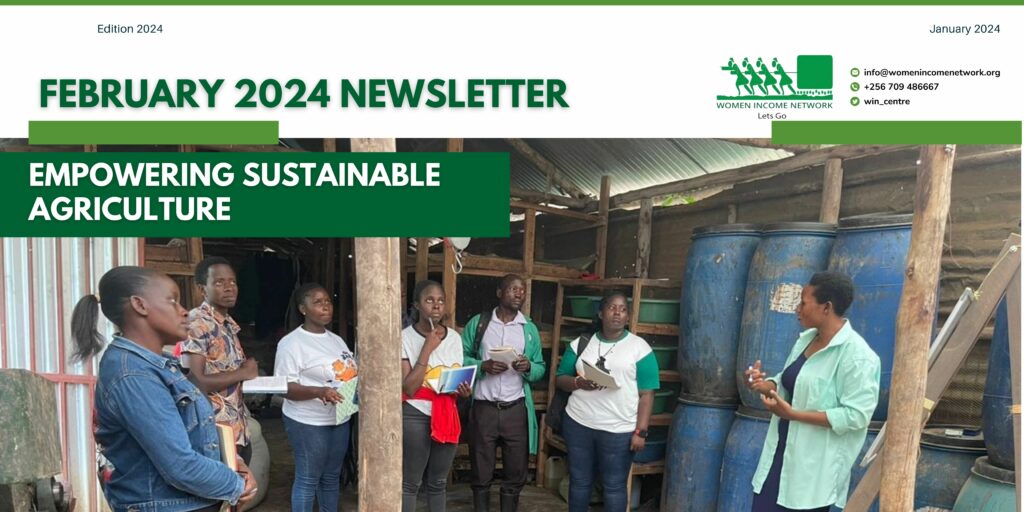
our 2024 February newsletter
- 1 mins Read
Hello WIN Community,
Greetings from WIN. We are pleased to present the monthly report for February 2024, highlighting our progress, challenges, and ongoing efforts at Women Income Network.
Organic Fertilizer Production:
WIN has successfully processed and packed approximately 0.65 tonnes of purely organic fertilizer from the demonstration farm, complemented by an impressive 1.95 tonnes from the beneficiary farms, all ready for sale. This nutrient-rich fertilizer, rich in ammonia excreted by the maggots themselves, is a powerhouse for enhancing soil health and crop productivity, free from impurities.
Waste Recycling and Maggot Feed:
We efficiently processed approximately 5.5 tons of organic waste from Kalerewe Market, Uganda, and an additional 5 tons from our outgrowers. While we couldn’t process it as initially intended, the waste was converted into feed for maggots, demonstrating our innovative approach to waste management.
Black Soldier Fly Eggs and Larvae Production:
This month, we harvested approximately 350 grams of black soldier fly eggs and an impressive 1,750 grams from our beneficiaries. These eggs hatched into larvae, which fed on organic waste, yielding 4,200 kilograms of fresh larvae. These larvae are currently undergoing drying and milling processes to produce animal protein, furthering our sustainable farming practices.
Farmer Training and Special Engagements:
In addition to our regular farmer training sessions, we had the privilege of hosting Bugema University agriculture students, led by their lecturer, Madam Allen Abaho. These sessions provided valuable insights and practical learning opportunities for the students, furthering our commitment to knowledge exchange and capacity building in sustainable agriculture. Additionally, we welcomed a group from Bukedde Radio, offering them an immersive experience into our innovative farming practices and environmental initiatives. These engagements not only fostered collaboration but also amplified our efforts to promote sustainable farming practices within wider communities.

